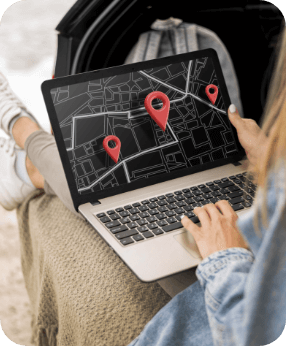Why get a hearing test?
As we age, our hearing often diminishes, just like our eyesight. Living with impaired hearing means missing out on many of life's joys, from conversations to the sounds of nature.
A hearing test is the first step to discovering if you need a hearing aid, which can significantly enhance your auditory world.


What You Need
To Know
Find a Clinic


Peace of Mind
Get the facts on your hearing with a quick check

Simple Steps
Hearing tests are easy, fast, & completely pain-free

Same Day
Many appointments can be booked for the same day

Near You
We have hearing testing locations all over the UK
What To Expect?

Local Specialists
We'll direct you to certified professionals in your desired area


Quick Session
Typically, it takes from 10 to 15 minutes with no lengthy procedures


Hearing Booth
You will be in a specially designed sound proof booth for accuracy

Instant Results
Your hearing levels are assessed and results are explained


Response Task
Simply press the button as soon as you hear any sounds


Listening In
Hear a series of beeps at quite different pitches and volumes


How
it Works

1.
Enter Your Location
Quickly find the nearest clinic by providing your current location.


2.
Choose Your Clinic
Select the most convenient clinic from our trusted locations list
How
it Works

3.
Book Appointment
Secure your preferred time slot with an easy online booking process
Frequently Asked Questions
Common symptoms include difficulty understanding speech, needing to increase the volume on devices, and experiencing ringing or
buzzing in the ears.
Hearing loss is quite prevalent, affecting millions. Regular hearing tests are recommended for adults, especially as they get older, and
for anyone experiencing symptoms of hearing loss.
Yes, it’s safe for most children. We use gentle methods suitable for younger ears.
Diagnosing hearing loss usually involves a physical examination and a series of hearing tests to measure the ability to hear various volumes and pitches.
Treatment options depend on the cause and severity of hearing loss and may include antibiotics for infections, removing any blockages like earwax, or using assistive devices such as hearing aids or cochlear implants.